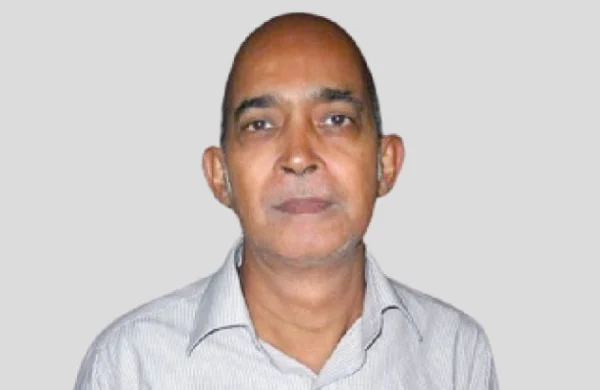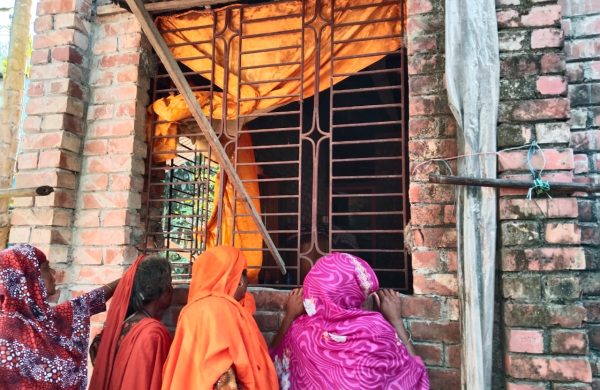Hasina’s Delhi Visit: Bangladesh, India Unleash Citizen Diplomacy
- Update Time : Monday, June 24, 2024

—Pallab Bhattacharya—
Prime Minister Sheikh Hasina, in her joint media appearance with her Indian counterpart NarendraModi at Hyderabad House in New Delhi on June 22, described her talks as “most productive.” That she was absolutely on the mark was evident in the outcomes of her first bilateral state visit abroad since returning to power for the fourth time in a row in January this year.
The two most significant outcomes were (1) India deciding to send a team of technical experts to Bangladesh for studying a project for conservation and management of Teesta river in Bangladesh with Indian assistance and (2) a slew of steps like introduction of e-visa by India for medical patients from Bangladesh, starting a passenger bus service between Kolkata and Chattogram, a rail link between Kolkata and Rajshahi, setting up of an Assistant High Commission in Rangpur for easier visa facility for the people in north western Bangladesh, Muktijoddha scheme for medical patients with an upper ceiling of Indian Rs eight lakh per patient and India to extend transit facilities for movement of Bangladesh goods to Nepal and Bhutan through railway network.
These are decisions which, when implemented, would touch the daily life of common people on both sides of the border. True, there were no fresh grandiose projects requiring huge investments entailing a long time for implementation. But it should not be forgotten that it is the low-hanging fruits like e-visa, bus and rail services that matter more and require much less time to take off.
The outcome of Hasina’s visit signals the diplomacy of Dhaka and New Delhi is for now more oriented towards achieving quicker results for ordinary citizens.
Understandably, the media focus in both Bangladesh and India has been much more on the project for conserving and managing Teesta waters.
The announcement is significant as it comes amid the keenness expressed by China to develop theTeesta basin water management.
Aware of India’s sensitivities about China’s growing footprints in South Asia, Bangladesh has maintained it will consider “geopolitical issues” before going ahead with the project. One has to wait and see what transpires on the issue in talks between Hasina and the Chinese leadership when she visits Beijing possibly in July.
It is tempting to take a dim view of India’s decision to send the technical team to study the project for conservation and management of Teesta waters in Bangladesh on the ground that would take the focus away from the proposed treaty on sharing the waters of the river, which has been hanging fire for the last 13 years due to opposition from West Bengal chief minister Mamata Banerjee.
Certainly, the proposal for conserving and managing Teesta basin does not preclude any proposed agreement to share its water. It is not a case of either-or. The proposal for conservation and management of Teesta water has been thought of by Bangladesh as an additional measure to address the sufferings of the people along the Teesta in the absence of the Teesta treaty.
Indian Foreign Secretary VinayKwatra, in his media briefing after Hasina-Modi talks, made it clear that “given that our close and friendly ties with Bangladesh, cross-boundary river issues, and Teesta is one of them, becomes important. This is also a subject matter of discussion under the joint river commission between the two countries and these subjects do come up for discussions.”
He drove home the point that since the conservation of Teestariver requires a fair degree of technical management, “It is less about water sharing per se, it is more about the management of the water flows within Teesta river. Since the subject matter of that restoration is technical in nature, the understanding between the two leaders was that a technical team would undertake efforts to make progress on this.” The major diplomatic feat for Hasina is to rope in India‘s in-principle readiness in the conservation project.
The most tell-tale sign that Teesta conservation does not shut the doors, half or full, on a treaty for sharing its water can be had from Para no 6 of the Shared Vision For Future released by India’s External Affairs Ministry.
It says “Recognizing the importance of water resource management in our bilateral relationship, we will continue to engage in prioritizing the exchange of data and formulating the framework for interim water-sharing based on the recommendations of the Joint Rivers Commission. As part of our development cooperation, we will also undertake conservation and management of Teestariver inside Bangladesh with Indian assistance within a mutually agreed time-frame.”
As part of a roadmap for the future growth of bilateral ties, the two countries resolved to pursue collaboration in frontier technologies like space and for this decided to partner in joint development of a small satellite for Bangladesh and its launch using an Indian rocket.



















